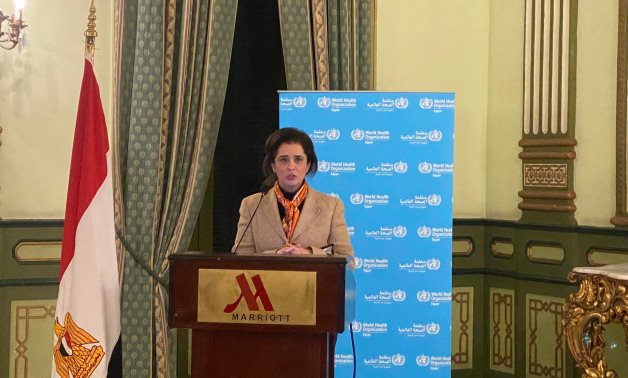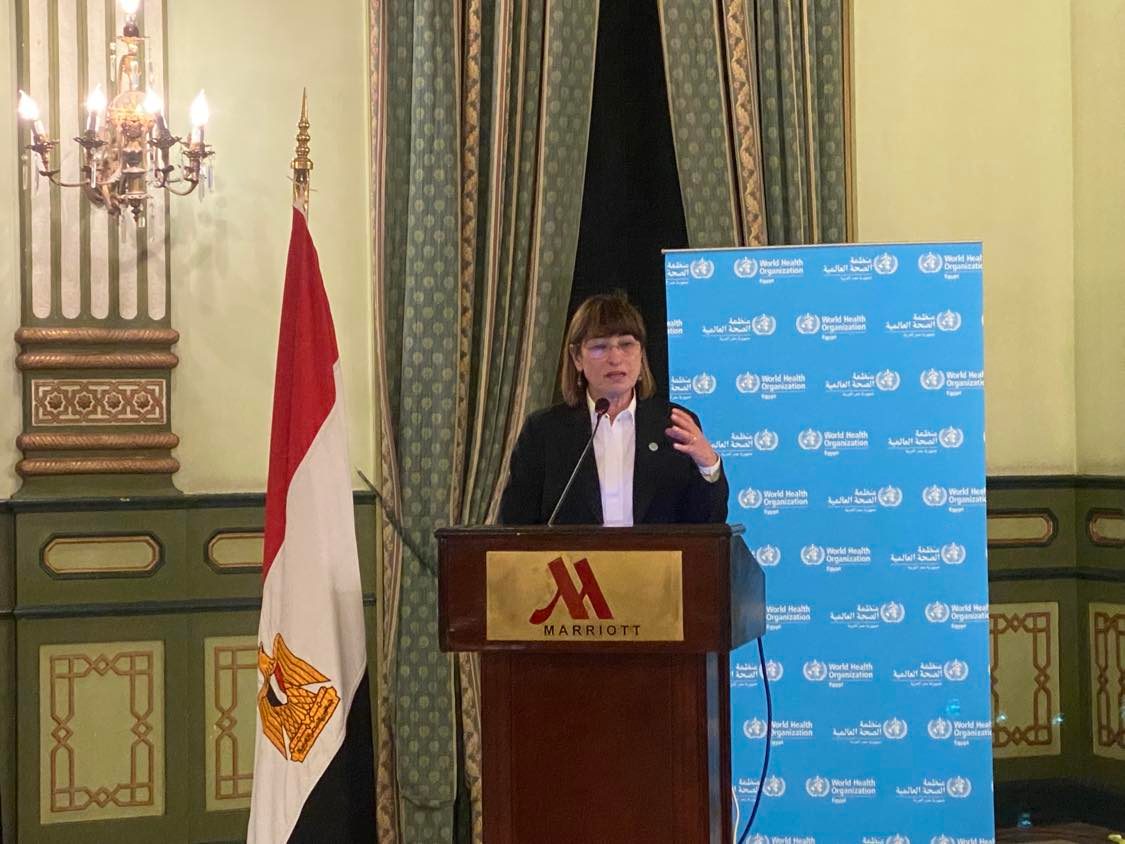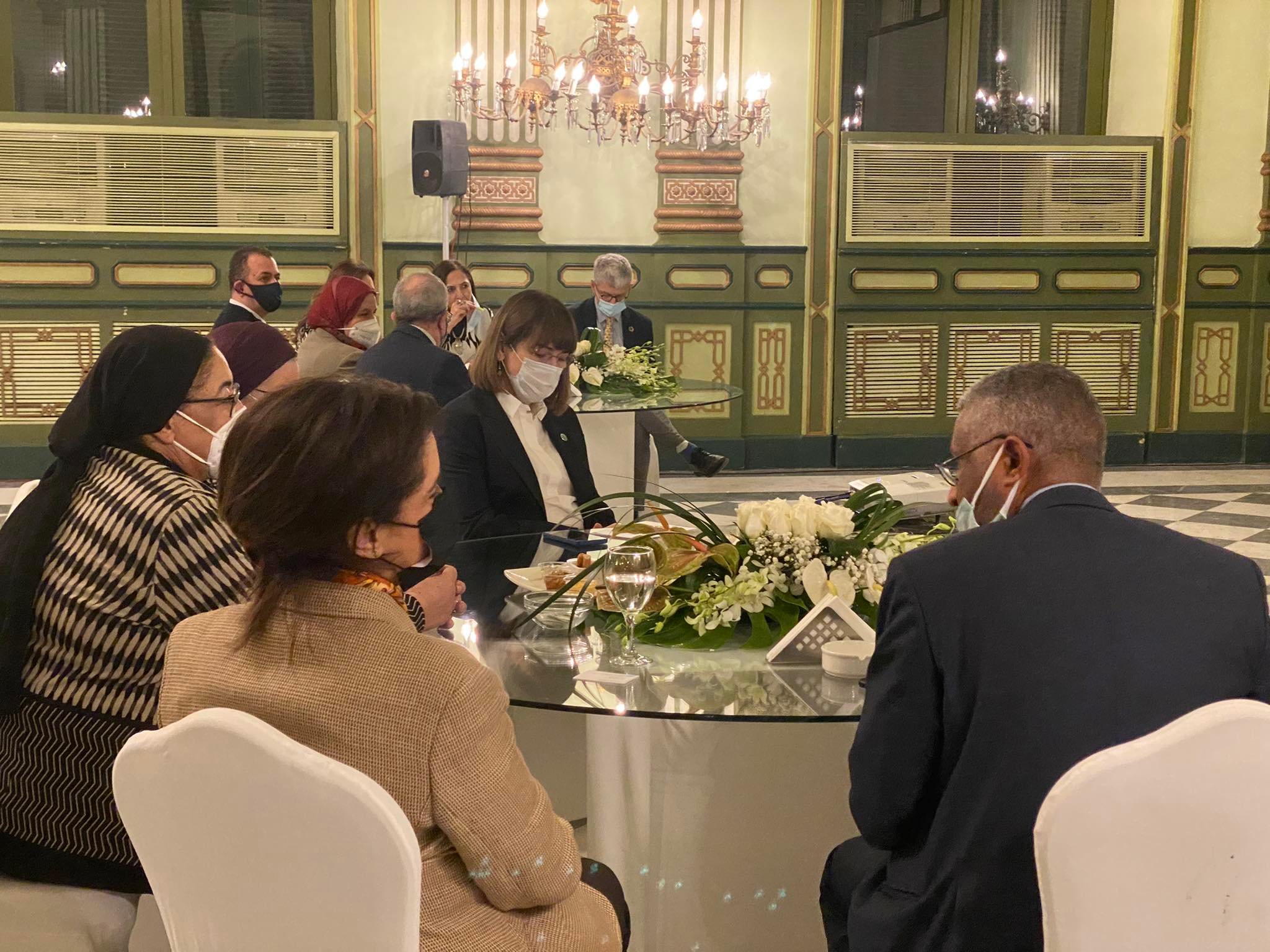
Dr. Hanan Balkhy, the Assistant Director-General for Antimicrobial Resistance at the World Health Organization
CAIRO – 6 December 2021: With the problem of antimicrobial resistance (AMR) is rising worldwide as a global health and development threat, the WHO office in Cairo organized an event to discuss visions on the way forward.
The event was attended by representatives of embassies, international organizations and WHO regional office in Egypt.
Among the attendees was Dr. Hanan Balkhy, the Assistant Director-General for Antimicrobial Resistance at the World Health Organization, who is visiting Egypt among her tour in the region.
In her speech, she highlighted the importance of rising public awareness to the logical use of antibiotics, urging that every country set a strategy “to bend the curve of AMR in the future.”
“This problem neither new nor in the future; it is happening now,” said Balkhy. She explained that some countries announced national action plans in this regard, but such plans are still on the shelves and not activated yet.
On the sidelines of the event, Balkhy spoke to Egypt Today about her meeting with the acting Egyptian Minister of Health Khaled Abdel Ghaffar, and discussions regarding the national action plan to combat antimicrobial resistance.
“There was good response, and we believe that Egypt has all required elements, and can be a model for other countries in combating AMR,” she added.
“I think the diagnostics are one of the biggest problems, because there are no limited diagnostic capacities in the middle and low income countries, and then there is the lack of knowledge,” Balkhy continued, adding that there should be available labs for accurate diagnosis, so that antibiotics are prescribed for specific diseases diagnosed.
Speaking about public awareness, she further went on explaining that “people should only take antibiotics when prescribed by doctors, and when the finish their treatment plan, they should not share the remaining pills with others. This is one important step in raising public awareness.”
WHO designated the period between Nov. 18-24 as the World Antimicrobial Awareness Week (WAAW), and Egypt was one of the participating countries, but the problem need concerted efforts from the governments, private sector and civil society.
On her part, Representative of the World Health Organisation (WHO) in Egypt Dr. Naima Al Qaseer told Egypt Today that the Egyptian Ministry of Health showed its concern on raising public awareness on the optimum guidance in using antibiotics.

UN Resident Coordinator in Egypt Elena Panova
UN Resident Coordinator in Egypt Elena Panova was also present in the event, and highlighted in her word the negative consequences of the AMR, saying that it comes with huge economic loss, besides losses in lives and decline in food security.
Solving this problem requires multisectoral action in order to achieve sustainable development goals, Panova said.
What is AMR?
WHO has declared that AMR as one of the top 10 global public health threats facing humanity.
Misuse and overuse of antimicrobials, like antibiotics, are the main drivers in the development of drug-resistant pathogens, according to WHO website.

Lack of clean water and sanitation and inadequate infection prevention and control promotes the spread of microbes, some of which can be resistant to antimicrobial treatment.
Prolonged illness results in longer hospital stays, the need for more expensive medicines and financial challenges for those impacted, which significantly affects the economy.
Comments
Leave a Comment